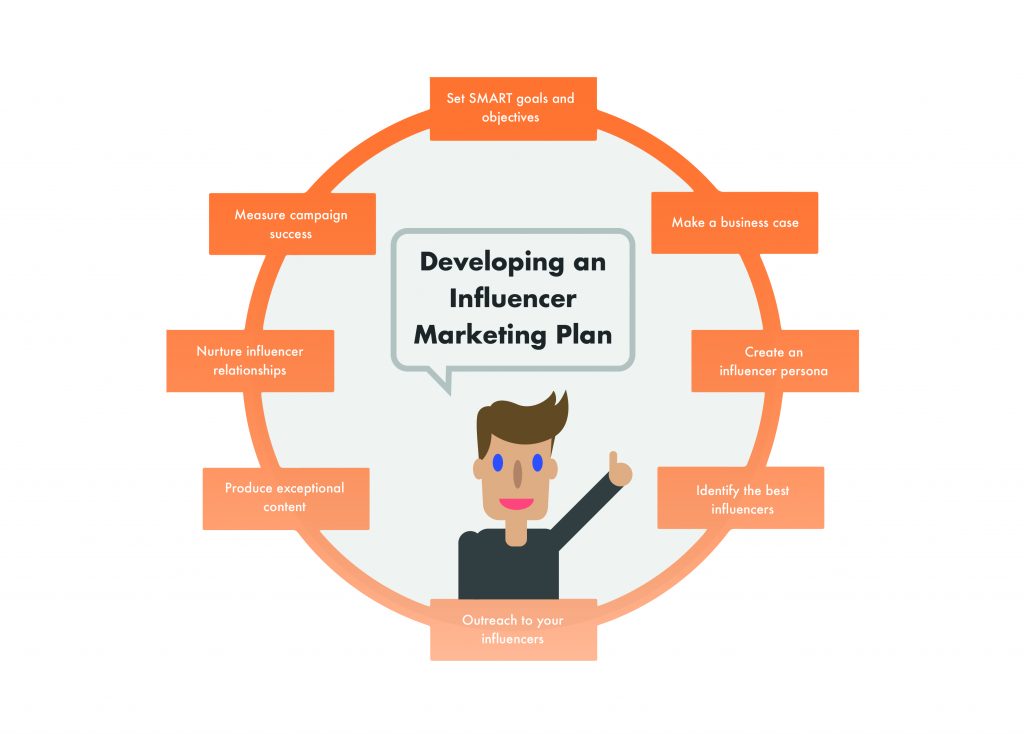Trust is a critical factor for both B2C and B2B buyers when they make purchasing decisions. Gain the trust of your audience and they are more likely to form a relationship with your brand and continue to purchase. It may sound simple, but a major roadblock in the quest to forming trusting relationships between brands and their audiences is actually connecting in the first place.
Influencer marketing: the B2B marketer’s trump card?
Scientists are hard-wired to learn and discover, and they are typically cynical of traditional, promotional marketing methods or messaging. Within a crowded marketplace, it is therefore vital to prove the value of your brand and products by providing real-life evidence in the form of data, results and personal experiences instead of ‘overtly selling’.
Influencer marketing is a trend that has flourished considerably over the past two years, and it is a viable way to build trust amongst audiences.
Influencer marketing leverages individuals who are well-respected and known within their field to enable brands to benefit from the influence they have with their audience and reinforce their brand message and offering in a more subtle, and powerful way. As buyers within the science and technology industries respect, learn from and value evidence from well-respected peers, implementing a well-planned influencer marketing strategy could pay dividends.
A recent study by Nielsen’s, surveying more than 28,000 respondents in 56 countries; found that 92% of consumers say they trust recommendations above any other forms of advertising, and it is likely to be even more compelling in the rational world of B2B selling. In addition, statistics from Marketing Think show:
- 80% of B2B decision makers visit vendor-independent communities, vendor-sponsored forums and LinkedIn at least monthly for business purposes.
- 81% of B2B decision makers use online communities and blogs to help make purchasing decisions.
These statistics demonstrates that businesses are increasingly using social platforms to make purchasing decisions and this is the space where influencers and brand ambassadors can have the biggest impact if utilised effectively.
Why consider influencer marketing?
- Influencers are relatable to their audience: Influencers are often users of specialist products themselves, so they talk from a user’s point of view. As they use the products themselves, they are more relatable to potential buyers, and can tell a compelling product story with application examples, instead of purely talking about product features.
- Influencers add value: Influencers are often able to provide a new perspective and showcase the results that your product has achieved. Scientists want to be sure that if they purchase a product, it will be capable of producing robust results, and data can go a long way in proving the value of your product.
- Influencers can help tap into new audiences: A portion of the influencer’s audience may already know and follow your brand but they can also help reach targets who are not already aware of your brand and messaging, which opens up further opportunities in new groups and markets.
Convinced that influencer marketing could work for your business?
Once you decide to implement an influencer marketing programme, the next step is to devise a strategy that is going to provide meaningful results. This involves numerous steps, which are outlined in the graphic below:

In your quest to develop and implement a successful influencer marketing strategy, it is essential to success that you plan, track, measure and adapt your activities. If you would like to learn more about our experience in delivering successful influencer marketing programmes for our clients or would like further information on how we could help you, contact us today.
By Abby Armitt, Account Executive at The Scott Partnership





